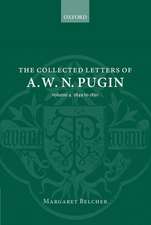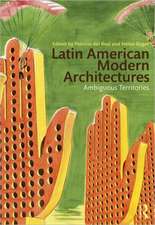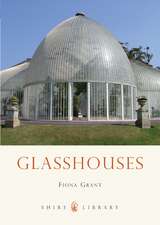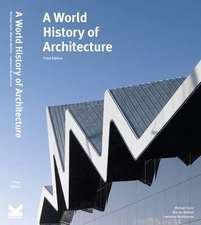Articulating British Classicism: New Approaches to Eighteenth-Century Architecture: Reinterpreting Classicism: Culture, Reaction and Appropriation
Autor Barbara Arciszewska Editat de Elizabeth McKellaren Limba Engleză Hardback – 10 aug 2004
Preț: 1000.27 lei
Preț vechi: 1219.84 lei
-18% Nou
Puncte Express: 1500
Preț estimativ în valută:
191.43€ • 199.11$ • 158.03£
191.43€ • 199.11$ • 158.03£
Carte tipărită la comandă
Livrare economică 14-28 aprilie
Preluare comenzi: 021 569.72.76
Specificații
ISBN-13: 9780754637356
ISBN-10: 0754637352
Pagini: 298
Dimensiuni: 156 x 234 x 18 mm
Greutate: 0.45 kg
Ediția:1
Editura: Taylor & Francis
Colecția Routledge
Seria Reinterpreting Classicism: Culture, Reaction and Appropriation
Locul publicării:Oxford, United Kingdom
ISBN-10: 0754637352
Pagini: 298
Dimensiuni: 156 x 234 x 18 mm
Greutate: 0.45 kg
Ediția:1
Editura: Taylor & Francis
Colecția Routledge
Seria Reinterpreting Classicism: Culture, Reaction and Appropriation
Locul publicării:Oxford, United Kingdom
Cuprins
Contents: Preface; Introduction: Classicism: constructing the paradigm in Continental Europe and Britain, Barbara Arciszewska; Popularism versus professionalism: John Summerson and the 20th-century creation of the 'Georgian', Elizabeth McKellar; 'A mockery of the Surveyor's style'?: alternatives to Inigo Jones in 17th-century elite British architecture, Elizabeth V. Chew; From Burlington Gate to Billingsgate: James Ralph's attempt to impose Burlingtonian classicism as a canon of public taste, Matthew Craske; A 'Rarie-shew System of Architecture': Bath and the cultural scenography of Palladianism, Carol Watts; Commercialization and backlash in late Georgian architecture, Daniel M. Abramson; Joseph Gandy and the politics of rustic charm, Andrew Ballantyne; Negotiating classicism in 18th-century Deptford and Philadelphia, Bernard L. Herman and Peter Guillery; Architectures of confidence?: Spanish Town, Jamaica, 1655-1792, James Robertson; Select bibliography; Index.
Notă biografică
Barbara Arciszewska, Elizabeth McKellar
Descriere
Whereas the past decades have seen a profound reconsideration of eighteenth-century visual culture, the architecture of that century has undergone little evaluation. Its study, unlike that of the early modern period or the twentieth century, has continued to use essentially the same methods and ideas over the last fifty years. Articulating British Classicism reconsiders the traditional historiography of British eighteenth-century architecture as it was shaped after World War II and brings together for the first time a variety of new perspectives on British classicism in the period. Drawing on current thinking about the eighteenth century from a range of disciplines, the book examines such topics as social and gender identities, colonialization and commercialization, notions of the rural, urban and suburban, as well as issues of theory and historiography. Canonical constructions of Georgian architecture are explored, including current evaluations of the continental intellectual background, the relationship with mid-seventeenth century Stuart court classicism and the development of the subject in the twentieth century.







